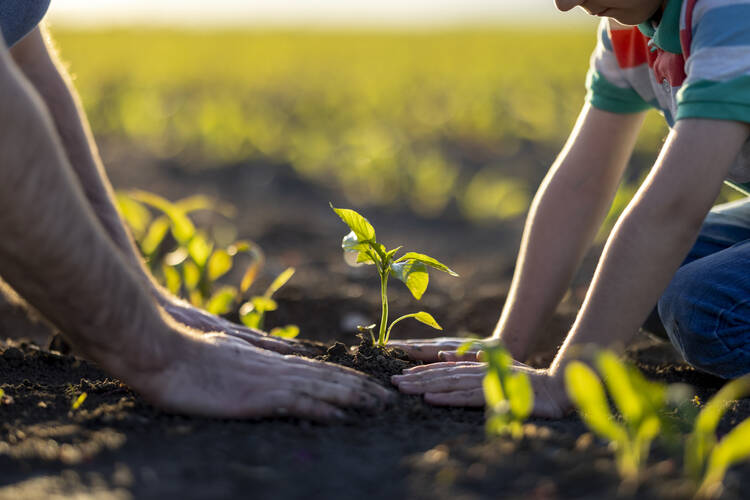A Reflection for the Memorial of Saints Timothy and Titus, bishops
Find today’s readings here.
“To what shall we compare the Kingdom of God,
or what parable can we use for it?
It is like a mustard seed that, when it is sown in the ground,
is the smallest of all the seeds on the earth” (Mk 4:30-31).
On a frigid Sunday evening earlier this month, I attended the 6 p.m. Mass at my parish, the post-holiday blues already starting to sink in. I was alone in my pew, and directly behind me were a mother and her teenage son. He slept the entire Mass, snoring lightly. During the sign of peace I turned around to nod and smile, and as I did, she planted a gentle kiss on the forehead of the sleeping boy.
After Mass, I turned to her to say how moved I had been by that simple gesture. Almost apologetically, she told me he had been in the emergency room the night before and had barely slept, “but we had to be here,” she said.
In today’s Gospel from Mark, Jesus offers two descriptions of the kingdom of God. In the first parable, a man scatters seed on his land, and as he “would sleep and rise night and day…the seed would sprout and grow, he knows not how.”
Next, Jesus offers the familiar parable of the mustard seed, a seed no larger than the head of a pin that grows and “puts forth large branches, so that the birds of the sky can dwell in its shade.”
Why is it that Jesus often turns to seeds when explaining the reign of God? In his book Jesus of Nazareth: What He Wanted, Who He Was, the German theologian Gerhard Lohfink offers a couple of explanations: first, that the revolution inaugurated by Christ’s coming is something that will transform this world, within its history, not in some new age to come. Jesus’ revolution comes not with great armies or apocalyptic signs but through the ordinary, barely perceptible outworking of nature—the growth of a plant, the leavening of bread.
These parables also tell us that God always starts small—calling a specific individual, Abraham, building up a specific nation, Israel, and continuing to call us each by name today.
“The reign of God grows in secret, in what is little, in what is inconspicuous, because God wants the old world to transform itself freely into God’s reign,” Lohfink writes. “In his parables about seed Jesus portrays a silent revolution and the best symbol for its growth. It happens in silence. Growing things make no noise” (109).
A mother kissing her sleeping son may seem like a small, ordinary thing. But in a silent moment of the Mass that night, I could not help but feel like a seed had been planted in my heart and most certainly in the heart of her child.








